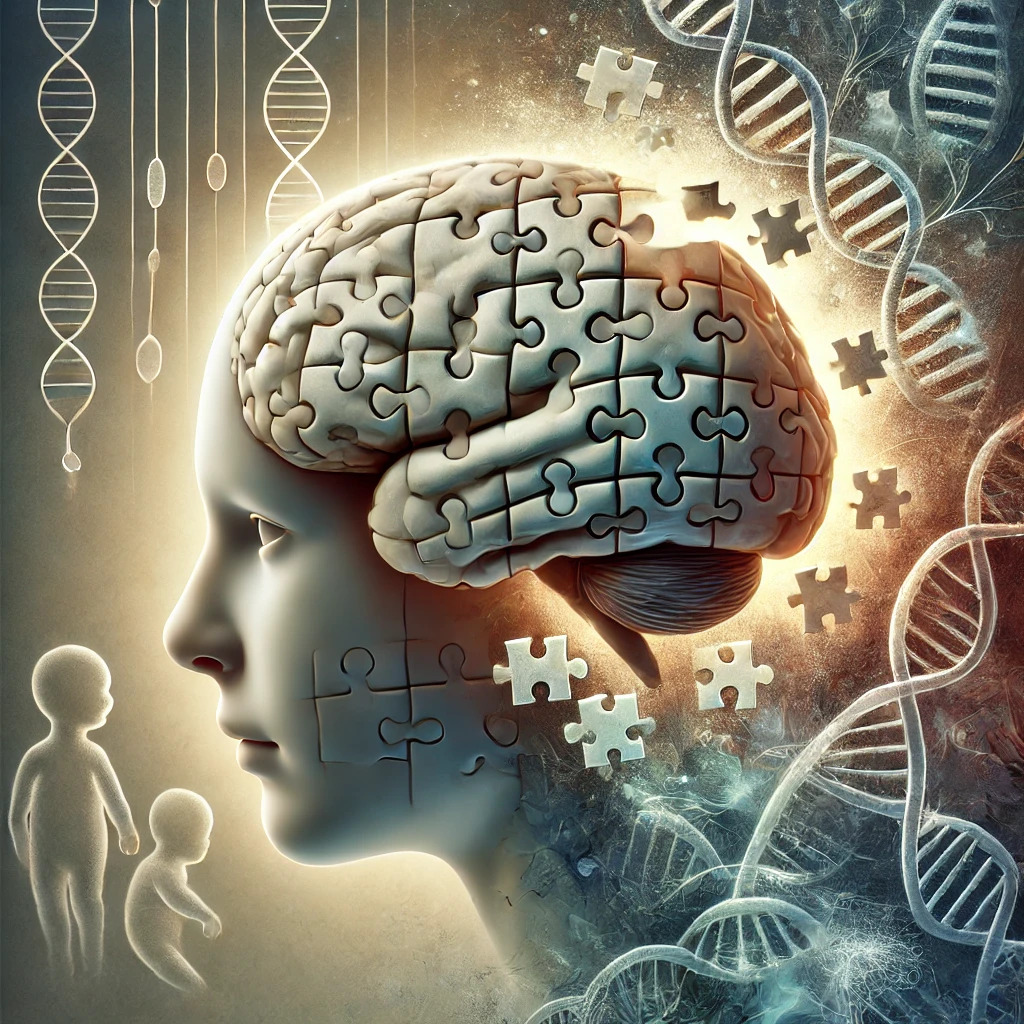Physical Address
304 North Cardinal St.
Dorchester Center, MA 02124
Physical Address
304 North Cardinal St.
Dorchester Center, MA 02124

“There is a great misconception that all psychopaths are violent criminals. The truth is, some of them are charming, intelligent, and highly successful individuals.”
— Dr. Kevin Dutton
The word “psychopath“ often conjures up images of ruthless criminals, manipulative masterminds, or cold-blooded killers. Hollywood and pop culture have fuelled the stereotype that psychopaths are incapable of change, forever locked into a life of deceit, manipulation, and emotional detachment. But is this really the truth?
Many people wonder: Can psychopaths change? Can therapy help psychopaths develop empathy? Is psychopathy treatable, or are they simply wired differently? The answers aren’t as black and white as you might think.
In this article, we will explore the science behind psychopathy, the possibility of change, and what treatment options, if any, that show promise. We’ll examine whether psychopaths are born or made, how they experience emotions, and what research says about therapy and rehabilitation. By the end of this article, you’ll have a clearer understanding of whether psychopaths can truly change, or if their nature is permanently set in stone.
Psychopathy isn’t as rare as people assume. Experts estimate that 1.2% of the general population and up to 25% of the prison population exhibit psychopathic traits, meaning there are a total of 82 million psychopaths are alive today. These individuals exist among us, in boardrooms, relationships, and even leadership positions. If change is possible, it could reshape how we approach criminal rehabilitation, relationships with psychopaths, and even mental health treatment.
Psychopathy is a personality disorder characterised by a lack of empathy, manipulative behaviour, superficial charm, and a disregard for social norms. Unlike common misconceptions, not all psychopaths are violent criminals, many operate in society without ever breaking the law, living totally normal and productive lives.
Some common signs of a psychopath include:
These characteristics are usually due to a lack of empathy and a dampened emotional range. However, many of the traits such as their often inherent charm and charisma, are often a symptom of their psychological masking. This term refers to the ability of many neurodivergent individuals psychopaths included to ‘act’ in the same way a ‘normal’ or neurotypical person would.
A common point of confusion in understanding psychopathy is knowing the difference between psychopaths and sociopaths. While both belong to the antisocial personality disorder (ASPD) spectrum, psychopaths are thought to be more calculated and emotionally detached, whereas sociopaths are more erratic and prone to emotional outbursts.
Another key distinction often reported in scientific literature is that psychopaths are born, while sociopaths are made, or so the theory goes. But is psychopathy purely genetic, suggesting that psychopathy occurs at birth, or, in the same way as sociopathy, can environmental factors play a role?

Research suggests that psychopathy has a strong genetic component. fMRI scans (which investigate brain activity in specific regions) show psychopaths have reduced activity in the amygdala, the region of the brain responsible for processing emotions, fear and empathy. Similar studies also revealed the prefrontal cortex of many psychopaths, the area involved in impulse control, morality and decision-making, is under-active.
This biological wiring may explain why psychopaths don’t feel emotions the same way neurotypical people do. But does this mean they are incapable of change? Not necessarily.
While genetics play a role, research shows environmental factors can shape psychopathic tendencies. Traumatic childhood experiences, neglect, and early exposure to violence can amplify psychopathic traits. In some cases, children who show early psychopathic tendencies, often referred to in literature as “callous-unemotional traits”, may develop more severe psychopathy if raised in an unstable or abusive home.
So, can early intervention prevent a child from becoming a full-blown psychopath? Research suggests that certain therapies, such as cognitive behavioural therapy (CBT) and emotional regulation training, may help mitigate psychopathic behaviours in children, but the effectiveness in adults remains uncertain and controversial.
One of the biggest questions people ask is: Do psychopaths have emotions? The short answer is yes, however arguably not in the same way most people do.
Psychopaths often lack affective empathy, meaning they don’t instinctively feel others’ pain or emotions. However, they can have cognitive empathy, meaning they understand emotions on an intellectual level and can mimic them when necessary.
For example:
This emotional disconnect is often why psychopaths struggle with deep, meaningful relationships. However, this is not to suggest that all psychopaths are entirely incapable of change.
As previously discussed, fMRU brain imaging studies have revealed that psychopaths process emotions differently. Their amygdala (the brain’s emotional centre) is under-active, meaning they don’t experience fear, guilt, or sadness in the same way others do.
Interestingly, some research suggests that psychopaths can “switch on” empathy when prompted. In controlled experiments, when instructed to feel empathy, some psychopaths showed increased brain activity in areas related to emotional processing. This suggests that, while empathy isn’t automatic for them, they may be able to develop it with effort.
This has brought about a debate in regards to the brain imaging research. Is the change in brain activity seen when psychopaths are asked to show empathy indicative of a true emotional change, or is the mere act of feigning these emotions leading to the brain activity increase in those regions?
Personality traits, including psychopathy, are generally stable over time. Traditional psychology suggests that psychopaths don’t change, but recent studies challenge this belief.
Some key findings:
However, deep emotional shifts, such as developing true guilt or remorse, remain highly unlikely. This is due to these emotional traits being extremely complex, and their necessity to integrate many parts of the brain, making them extremely difficult to act and even harder to learn.

Some experts believe that psychopathy naturally fades over time, a phenomenon known as “criminal burnout”. As psychopaths age, their energy levels, impulsivity, and thrill-seeking behaviors may decline, but this doesn’t necessarily mean they become “good people.”
For example, an older psychopath may stop committing crimes because the risks outweigh the rewards, not because they’ve developed a moral compass. So while some psychopathic behaviours may decrease with time, the core traits remain intact. But what about therapy?
One of the most controversial questions in psychology is: Can therapy help psychopaths?
Historically, treatment efforts have been largely unsuccessful. Traditional therapies, such as talk therapy or group counseling, often backfire, as psychopaths learn to manipulate therapists or mimic emotional responses rather than actually change.
However, some new approaches show potential:
As with almost any mental-health condition, treatments that use both medications and cognitive therapies such as CBT are recognised as the most effective, thus there have been many efforts made to aim to treat certain aspects of psychopathy with medications.
Whilst there is no “anti-psychopathy pill,” but some medications have been explored:
These medications are used in many mental health conditions, and haven’t been specifically designed to treat psychopathy. This ultimately means that each medication on their own will likely only address one of the many elements that contributes to psychopathy. While these treatments don’t create empathy and ultimately alleviate the psychopathic condition, they may help control destructive behaviours, curb aggression and make living as a psychopath more emotionally managable.
Most studies show limited success in rehabilitating psychopaths. However, high-functioning psychopaths, such as corporate leaders or politicians, may learn to control their behaviours to fit social norms and even utilise their unique emotional perspective to provide an advantage and a competitive edge.
However, for violent or extreme psychopaths, change remains highly unlikely and unfortunately despite their best efforts and the treatment attempts of doctors and clinicians may end up facing incarceration due to their actions.

So, Can a psychopath have a normal life, maintain relationships, or even raise a family? The answer depends on the severity of their psychopathy and the steps made to manage their challenges.
Some high-functioning psychopaths learn to navigate social expectations, using cognitive empathy (understanding emotions rather than feeling them) to appear normal in relationships. However, emotional depth is often lacking.
Challenges in relationships with a psychopath:
Despite this, some psychopaths stay in relationships, get married, and even have children. Whilst psychopathy will have inevitable impacts on all areas of their relationships, including intimacy, parenting style and romantic attachment, if these can be managed effectively truly ‘normal’ lives and romantic affections can be achieved.
Whilst the term “good” is subjective, many psychopaths function within societal norms and ultimately begs the question, is the intention or the outcomes of one’s actions what truly matters? Despite these questions, there are many areas outside of inherent ‘goodness’ that psychopaths can excel in, far better than the average person:
So, while they may not be “good” in the traditional sense, some psychopaths learn to integrate into society, through an understanding of others needs, to benefit those close to them and society as a whole.
Some of the most well-known psychopaths in history have committed horrific crimes, unable, or unwilling, to suppress their destructive instincts. Here are a few notable examples:
These individuals exemplify psychopathy at its most destructive, where unchecked impulsivity, manipulation, and a lack of empathy led to devastation.

Not all psychopaths engage in crime, some channel their traits into high-powered careers, where their fearlessness, calculated decision-making, and emotional detachment become valuable assets. Some examples include:
The key difference between psychopaths who succumb to their condition and those who don’t lies in self-interest, environment, and external regulation. Those in structured settings, such as corporate leadership, law enforcement, or politics, learn to channel their psychopathic traits in ways that benefit them without breaking laws. Others, especially those with impulsivity and violent tendencies, lack the ability or desire to conform to societal rules.
This raises an important question: Can psychopathy be redirected toward socially acceptable success, or is it only a matter of time before destructive traits emerge? While some psychopaths function within legal boundaries, the lack of genuine empathy remains a defining feature, whether in the boardroom or the crime scene.
The question “Can psychopaths change?” has no simple answer. Science suggests that while some traits can be managed, true emotional transformation is rare. This raises ethical concerns:
Whilst there is simply no straightforward answer to any of these questions, the future of the management and treatment os psychopaths in our society will revolve around these questions, and determine how and why we treat this significant portion of our population.
Emerging neuroscience research on brain plasticity, emotional training, and pharmaceutical interventions may offer new hope. While traditional therapy has largely failed, future treatments could focus on:
For now, the harsh reality is that deep emotional change in psychopaths remains unlikely, but behavioural control is possible, especially in those with motivation to adapt.
The question of whether psychopaths can truly change is complex and deeply debated. While research suggests that some psychopathic behaviours, such as impulsivity and aggression may decline with age, the core traits of psychopathy remain largely unchanged. The fundamental inability to feel deep empathy, guilt, or remorse is profoundly ingrained in the psychopathic brain, making true emotional transformation highly unlikely.
That said, some psychopaths do learn to modify their behaviour to better fit into society. Whether through self-interest, external pressures, or therapy, certain individuals with psychopathic traits may develop better impulse control, social skills, and an awareness of consequences. However, this does not mean they become more empathetic or “good” in the traditional sense, rather, they become more skilled at managing their actions.
Therapy and rehabilitation efforts have seen limited success, as many psychopaths manipulate therapeutic settings rather than engage in genuine self-improvement. However, emerging research on brain plasticity, emotional regulation training, and pharmaceutical interventions offers some hope for the future. Early intervention in childhood may also prove crucial in preventing psychopathy from fully developing.
Ultimately, while psychopaths may learn to adapt their behaviors, their fundamental nature remains largely unchanged. This makes understanding, awareness, and appropriate boundaries essential when dealing with individuals with psychopathic traits. Science may one day offer more effective interventions, but for now, the reality remains that psychopathy is a condition that is managed rather than cured.
This article is for informational and educational purposes only. The discussion of real-life individuals, including historical figures and public personalities, is based on publicly available information and psychological analyses conducted by experts. Any references to psychopathy in relation to these individuals are speculative and should not be taken as definitive diagnoses. The intent is not to label or defame any person but rather to explore how psychopathic traits may manifest in different ways. Readers are encouraged to conduct their own research and draw their own conclusions.